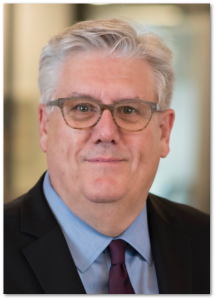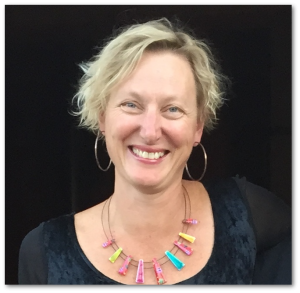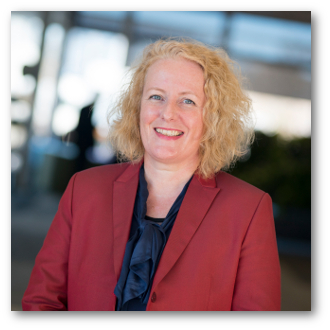This event took place in December 2019. You can view video recordings, notes and slides from the sessions here.
David Porter
Charting a Course Towards Open Innovation:
Open resources, open practices, communities of innovation
 Dr. David Porter is the CEO of eCampusOntario, the primary face of the Ontario Online Learning Consortium (OOLC), a not-for-profit corporation whose membership is composed of all 45 publicly funded colleges and universities in Ontario, Canada.
Dr. David Porter is the CEO of eCampusOntario, the primary face of the Ontario Online Learning Consortium (OOLC), a not-for-profit corporation whose membership is composed of all 45 publicly funded colleges and universities in Ontario, Canada.
David is a long-time advocate for the benefits of adapting new technology to deliver educational opportunities, and has been involved in open and distance learning since the 1990s, at both the K-12 and higher education levels.
David was formerly Associate VP Educational Support and Innovation at the British Columbia Institute of Technology. Prior to that appointment, David was the Executive Director of BCcampus. During his term at BCcampus, David and his team engineered Canada’s first government funded open textbook program, a leading-edge development in higher education in 2012.
David has also worked as a project leader and consultant for international open and distance learning initiatives, including projects in Mongolia, Vietnam, and India. In 2018, he was awarded the Canadian Network for Innovation in Education Leadership Award. On October 9, 2019, he received an Honorary Doctor of Laws degree from Kwantlen Polytechnic University in British
Columbia, Canada.
Charting a Course Towards Open Innovation:
Open resources, open practices, communities of innovation
Strategies to build a sustainable open education community are as unique as the culture, geography and individuals that make up our educational institutions. In Ontario, Canada, this diversity is pronounced in a system of 24 colleges, 21 universities and almost one million full time students. Large jurisdictions considering strategies to support open education initiatives often ask the same set of questions: Where do we start? How do we incent open innovation at the grassroots level? How do we make a case for open innovation as a leadership strategy?
For the past three years, eCampusOntario has been exploring the potential of a province-wide, discipline focused approach to the development of Open Educational Resources at scale. The “Open at Scale” model draws on the depth of discipline expertise available across colleges and universities in key areas of focus, such as Health, Business, and Technical and Vocational Education. The coordinated development of open educational resources in a digital first, modular format allows for an approach to reuse that has implications across multiple disciplines.
View full symposium programme
Cheryl Brown
Open textbooks:
What’s stopping us and why we need them.
 Dr. Cheryl Brown is an Associate Professor in e-learning in the School of Educational Studies and Leadership at the University of Canterbury and co-Director of the e-learning Lab. She has worked in the higher education sector for the past 20 years in South Africa, Australia, and now New Zealand.
Dr. Cheryl Brown is an Associate Professor in e-learning in the School of Educational Studies and Leadership at the University of Canterbury and co-Director of the e-learning Lab. She has worked in the higher education sector for the past 20 years in South Africa, Australia, and now New Zealand.
In the past few years, she has explored more closely the role technological devices (for example, cell phones and laptops) play in students’ learning and in the development of students’ digital literacy practices.
She is involved in a global Commonwealth of Learning project on Digital Education Leadership and is passionate about developing a healthy and critical awareness of both the opportunities and challenges of living and learning in a digital world.
Open textbooks: What’s stopping us and why we need them.
The cost of textbooks has been increasingly noted as an issue for students in post secondary education globally (Martin et. al, 2017, Rolfe and Pitt, 2018). Research from the United States has noted college students spend an average of $600 USD per year on textbooks (Hill, 2015) and in the United Kingdom, a study of science students from two universities found that 88% of students had not bought required textbooks due to costs (Rolfe, 2017). Given how integral textbooks are in many courses and academic programmes, this is a concerning phenomenon.
But how does this issue affect Aotearoa New Zealand students? One local study exploring the possible effects that textbook costs may be having on study behaviours of students at a New Zealand tertiary institution noted that students do seek alternative resources and other ways to access textbooks when cost is considered a factor. This emphasised the importance of acknowledging the changing way students were accessing and using course materials. (Stein, Hart, Keaney, & White, 2017).
In an endeavour to investigate these issues further, the national Centre for Open Education Practice (COEP) has expanded on this study through a research project exploring students’ views and experiences of access to textbooks. This presentation discusses some of the key findings from this research particularly the impact this has on students’ learning behaviour, including choice of programme and/or institution, and how students access and use course materials. Situating these findings in the global context of open education textbooks (Hilton, 2016), we look at the role of open textbooks in supporting access to equitable and quality learning resources in Aotearoa New Zealand.
References
Hill, P. (2015). How Much Do College Students Actually Pay For Textbooks? http://mfeldstein.com/how-much-do-col...
Hilton, J. (2016) Open educational resources and college textbook choices: a review of research on efficacy and perceptions. Education Tech Research and Development, 64(4), 573 - 590.
Martin, M., Belikov, O., Hilton III, J., Wiley, D., & Fischer, L. (2017). Analysis of Student and Faculty Perceptions of Textbook Costs in Higher Education. Open Praxis, 9(1), 79-91. doi:http://dx.doi.org/10.5944/openpraxis.9.1.432
Rolfe, V. (2017). Could open textbooks improve the experience of all students?
University of Plymouth 6th Annual PedRIO Conference.
https://www.plymouth.ac.uk/research/institutes/pedagogic/archived-events/6th-annual-pedrio-conference-2017
Rolfe, V., & Pitt, B. (2018). Open Textbooks – an Untapped Opportunity for Universities, Colleges and Schools. Insights 31: 30. DOI: http://doi.org/10.1629/uksg.427
Stein, S., Hart, S., Keaney, P., & White, R. (2017). Student Views on the Cost of and Access to Textbooks: An Investigation at University of Otago (New Zealand). Open Praxis, 9(4), 403-419. doi:http://dx.doi.org/10.5944/openpraxis.9.4.704
View full symposium programme
Oonagh McGirr
Social justice education matters:
A reflection on the promise and possibility of inclusive tertiary education
 Oonagh McGirr is the Deputy Chief Executive for Learning and Teaching Services at Otago Polytechnic. Oonagh has considerable experience in strategic leadership for international tertiary education. She has worked in international tertiary education for nearly three decades in both public and private sector. She has established and led learning and teaching development, led on education strategy for multi-partner entities, devised, implemented and delivered staff development and upskilling programmes for higher education practice, and led on institutional Teaching and Learning accreditation and recognition.
Oonagh McGirr is the Deputy Chief Executive for Learning and Teaching Services at Otago Polytechnic. Oonagh has considerable experience in strategic leadership for international tertiary education. She has worked in international tertiary education for nearly three decades in both public and private sector. She has established and led learning and teaching development, led on education strategy for multi-partner entities, devised, implemented and delivered staff development and upskilling programmes for higher education practice, and led on institutional Teaching and Learning accreditation and recognition.
She has led foundation, undergraduate and postgraduate programmes in Modern Languages, Cultural Studies, Linguistics, Education and Research in multidisciplinary settings at new and legacy tertiary education institutes in the UK, Europe the Middle East. Her research interests are the investigation of teacher identity in practice in higher education and the development of sustainable CPD frameworks for HE practitioners.
Social Justice Education Matters: a reflection on the promise and possibility of inclusive tertiary education
This session interrogates the potential, purpose and power of open source education as a driver for modelling inclusivity.
The presentation draws on professional experience, personal contexts and a philosophy of common sense for future proofing our collective endeavour in tertiary education. A case is made for leading by example, with a reflection on celebrating the milestone of a decade of the OER Foundation.
View full symposium programme
 Dr. David Porter is the CEO of eCampusOntario, the primary face of the Ontario Online Learning Consortium (OOLC), a not-for-profit corporation whose membership is composed of all 45 publicly funded colleges and universities in Ontario, Canada.
Dr. David Porter is the CEO of eCampusOntario, the primary face of the Ontario Online Learning Consortium (OOLC), a not-for-profit corporation whose membership is composed of all 45 publicly funded colleges and universities in Ontario, Canada. Dr. Cheryl Brown is an Associate Professor in e-learning in the School of Educational Studies and Leadership at the University of Canterbury and co-Director of the e-learning Lab. She has worked in the higher education sector for the past 20 years in South Africa, Australia, and now New Zealand.
Dr. Cheryl Brown is an Associate Professor in e-learning in the School of Educational Studies and Leadership at the University of Canterbury and co-Director of the e-learning Lab. She has worked in the higher education sector for the past 20 years in South Africa, Australia, and now New Zealand. Oonagh McGirr is the Deputy Chief Executive for Learning and Teaching Services at Otago Polytechnic. Oonagh has considerable experience in strategic leadership for international tertiary education. She has worked in international tertiary education for nearly three decades in both public and private sector. She has established and led learning and teaching development, led on education strategy for multi-partner entities, devised, implemented and delivered staff development and upskilling programmes for higher education practice, and led on institutional Teaching and Learning accreditation and recognition.
Oonagh McGirr is the Deputy Chief Executive for Learning and Teaching Services at Otago Polytechnic. Oonagh has considerable experience in strategic leadership for international tertiary education. She has worked in international tertiary education for nearly three decades in both public and private sector. She has established and led learning and teaching development, led on education strategy for multi-partner entities, devised, implemented and delivered staff development and upskilling programmes for higher education practice, and led on institutional Teaching and Learning accreditation and recognition.